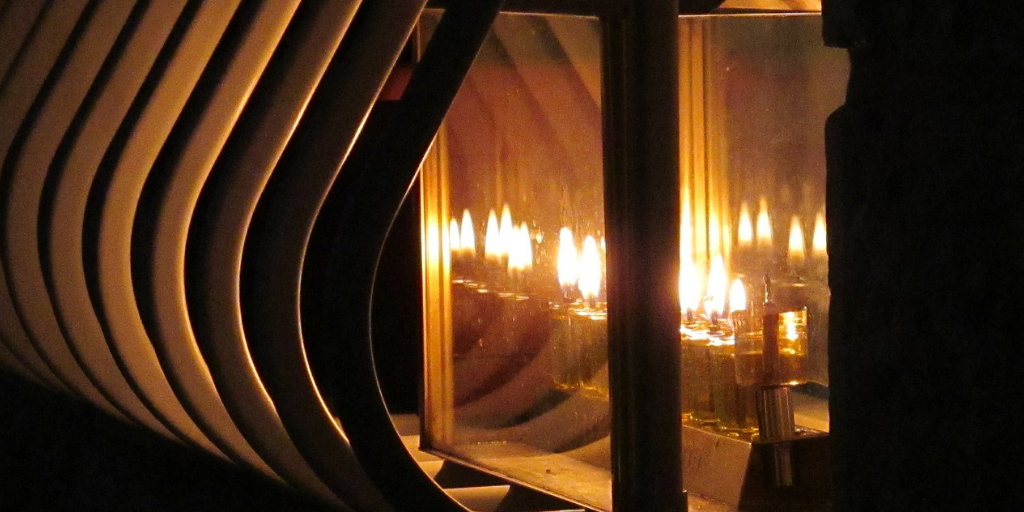One of my fondest memories of living in Eretz Yisrael as a yeshivah bachur was standing outside the doorway of our Jerusalem apartment and lighting the Chanukah menorah. As there were quite a few of us, we had several menorahs, and it was truly a special sight. My roommate was very musical and had a beautiful voice. We would sit for a long while singing the Chanukah songs and prayers, and as time passed, we young American boys would be joined by many of the local Yerushalmi men. It was quite a scene!
As strange as it was to see us American boys joined by our Yerushalmi neighbors, the idea of lighting a lamp outside one’s home would seem ever stranger. For example, one usually lights the Shabbat candles in the dining room to benefit from their light while eating the festive Shabbat meals. The idea of standing outside the Jewish home, the place of the Jewish family’s sanctity, and doing the mitzvah in the street is very unique indeed.
In the Shema we say that we are commanded to speak the words of the Torah “when you are sitting at home, traveling on the road…” (Deuteronomy 6:7). The home embodies the idea of sanctity and oneness with God. In fact, the Torah begins with the letter beit to signify that by fulfilling the Torah’s commands, we become connected to the One who is the Master of the house (bayit).
On the other hand, the concept of travel is always fraught with danger. Just as Rachel passed away while traveling, “traveling on the road” symbolizes the inherent dangers and spiritual distancing of going outside the home. However, the mitzvot of the Torah help us even the playing field, so we can connect to God not only when we are sitting in the synagogue, in a yeshivah, or in our Jewish homes, but even as we travel outside. Through the mitzvot, every external and mundane act we engage in transforms and elevates us to the highest place of God’s Unity.
The verse therefore continues, “[when you are] going to sleep and waking up.” One usually goes to sleep at night. Night is the time of darkness and uncertainty, when God seems hidden or disconnected from us. But we just proclaimed, “God is One!” (ibid. 6:4). We firmly believe that even when there is a perceived distance between us, we are always connected to Him. Therefore we connect the darkness of night to the light of day, and extend the Oneness of our homes to the distance of travel.
Our Rabbis teach that God’s Presence never descended below ten handbreadths. Nevertheless, we kindle the menorah at this height to show that in this very place, though God may not usually reveal Himself here, there is no doubt that His Unity embodies this space as well. Likewise, we light the menorah near the entrance to the house to symbolize that even as we navigate life’s difficulties and feel removed from our natural place of sanctity, nevertheless, God is always with us. We begin lighting the menorah at nighttime to show that darkness is nothing but an illusion. Through our faith in God, and the light of the menorah, “night, like day, will shine brightly” (Psalms 139:12).
The nights of Chanukah are the longest nights of the year. Like the cold weather outside, this is the time of year where life tends to be bitter and spiritually challenging. However, the simple light of a Chanukah candle descends from the greatest of heights to the lowest of places to demonstrate that God is always next to us. By taking a step back from everything going on right now and turning on this light switch, we awaken the Jewish spark within us so it can grow just a bit every night, until it finally becomes a raging fire. Amen!
Based on Likutey Halakhot, Shluchin 3
VIEW THIS WEEK’S PATHWAYS BELOW

